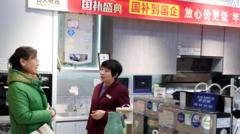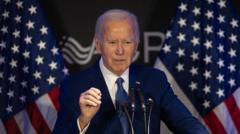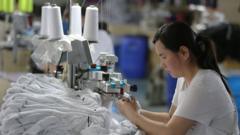China's push to stimulate its economy includes incentivizing citizens to trade in old kitchen appliances for discounts on new products, though some economists doubt its effectiveness.
China Implements Trade-In Scheme for Kitchen Appliances Amid Economic Struggles

China Implements Trade-In Scheme for Kitchen Appliances Amid Economic Struggles
The Chinese government expands trade-in scheme to invigorate consumer spending and combat economic downturns.
China is ramping up efforts to revitalize its sluggish economy by expanding a trade-in scheme that allows consumers to receive discounts of up to 20% on new kitchen appliances, including microwave ovens, dishwashers, rice cookers, and water purifiers. This initiative, which responds to a series of economic challenges such as weak consumer demand and a persistent property crisis, aims to make a noticeable impact on domestic consumption.
The existing trade-in program already covers a range of electronics like televisions, smartphones, tablets, smartwatches, and electric vehicles. With 81 billion yuan (approximately $11 billion) allocated for this year, government officials have highlighted the scheme's immediate benefits since its launch in March, claiming it has resulted in observable effects on market trends. Sales for high-ticket items, particularly home appliances and automobiles, have reportedly surged as a consequence.
Despite these optimistic claims from officials, several economists express skepticism regarding the scheme's potential to significantly enhance overall consumer spending. Economist Dan Wang emphasized that while the initiative has prompted sales increases for specific products, it falls short of igniting a broader resurgence in consumer confidence. Harry Murphy Cruise of Moody's Analytics echoed this sentiment, underlining that while the sales for selected goods have improved, these efforts alone are not sufficient to stimulate expansive economic growth.
In light of ongoing pressures facing its exporters and amid a climate of international trade tension—exemplified by President-elect Donald Trump's recent threats of hefty tariffs on Chinese products—China is committed to adopting further measures to bolster its domestic economy. In a significant meeting held last December, Chinese leaders underscored the urgency to intensify efforts to enhance consumer spending. All eyes will be on Beijing as the government prepares to release the anticipated 2024 economic growth figures next week, with expectations hovering around 5%.






















